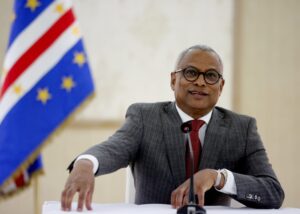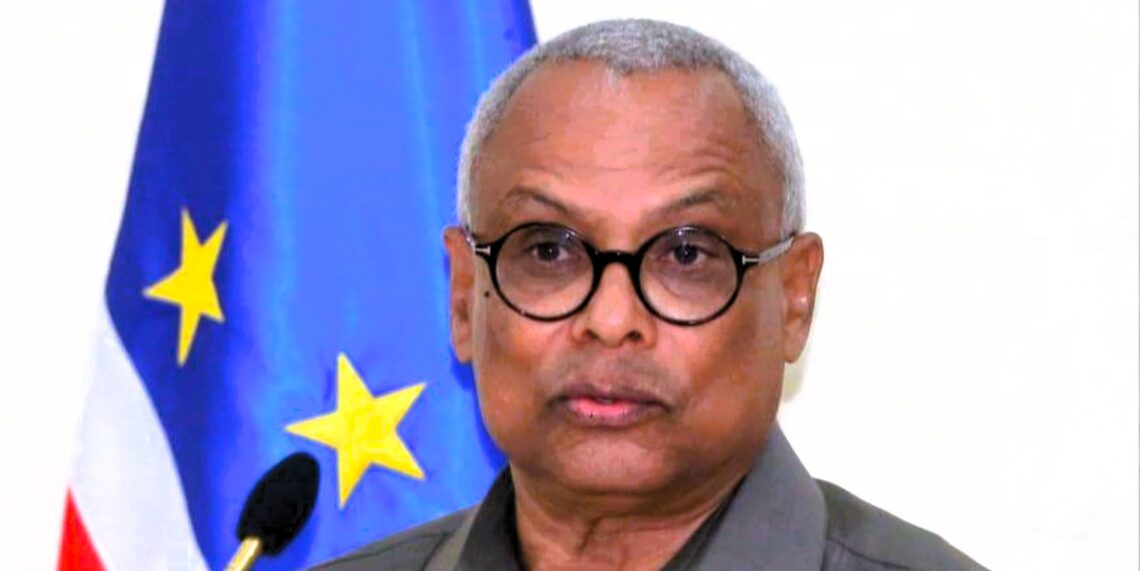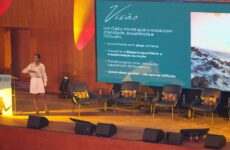President José Maria Neves has announced plans to launch a national dialogue on Cabo Verde’s development agenda for the next 50 years, seeking to engage both the islands’ population and the diaspora in shaping the nation’s future, as he shared in a press conference today in Praia.
*
Responding to questions about the recent controversy regarding the status of the First Lady—which this year led to an inspection and funds being returned to the Presidency—Neves commented that, as Head of State, he must “remain calm and take responsibility to stay above political squabbles.” “We will continue to see political figures engaging in disrespectful discourse; we will encounter incivility in politics and much discourtesy, but we need to know how to respond,” he stated.
*
“We mark three years in office with the theme ‘New Possibilities Cabo Verde 2075.’ Our vision is to look ahead to the next 50 years: our great ambition is to build a modern, prosperous, and fair country,” José Maria Neves told journalists during an event commemorating his third year as President.
“Our goal is to create, together, the Cabo Verde 2075 agenda—a true pact for the future,” he said, underscoring the need to move beyond “the short-term nature of electoral cycles” to focus on long-term plans that make the most of Cabo Verde’s strengths: “human talent, a vast marine area, abundant renewable energy resources, inclusive institutions, and social and political stability,” he noted.
In light of the upcoming 50th anniversary of independence in 2025, José Maria Neves expressed his intention to foster “open spaces for discussion and reflection, without any aim to interfere in governmental or party decisions.”
“This is not a legislative programme—that is for the government, elected by the people. There is no intent to intervene; rather, we wish to mobilise Cabo Verdean society” to share ideas that “will serve as resources for society and political parties,” he explained.
The President described an ongoing challenge in the “imbalance between society and citizens’ influence on the State.”

*
“We have a strong State that permeates all areas of society, but a relatively weak civil society and citizenry. When this balance is missing, the tendency is toward submission and fear. In Cabo Verde, there remains a certain level of fear and submission, which complicates democratic processes and limits the exercise of rights and freedoms,” he observed.
*
This issue, he added, extends to the media sector. Although the number and diversity of media outlets have increased, there remains a “strong influence of public media,” which he believes “limits the space for private media” in a small market.
José Maria Neves went on to highlight his achievements over the past three years, describing himself as a “listener” working to cultivate positive relationships.
“I have endeavoured to build good relations with all branches of power, ensure strategic cooperation with the Government, and maintain institutional stability,” which he believes he has achieved “with calmness, responsibility, and prudence,” and will continue for the “common good.”
Addressing again the First Lady status controversy—which led this year to an inspection and a return of funds to the Presidency—Neves reaffirmed that, as Head of State, he must “stay calm and act responsibly, keeping above political squabbles.”
“We will continue to see political figures engaging in disrespectful discourse; we will encounter incivility in politics and much discourtesy, but we need to know how to respond,” he remarked.
*
When asked if he is considering running for re-election, José Maria Neves responded that it is “not the time” to discuss such matters. “We are currently in a campaign for municipal elections; next will be the legislative campaign, and only in two years will we face the presidential election,” he noted.
*
The President added that he “would not feel comfortable” and that “it would be unethical to civil society to discuss presidential elections prematurely.”
“I even believe that, in Cabo Verde, we should focus less on elections and more on the country and its future,” he concluded.
A former Prime Minister, José Maria Neves was elected in the first round as the fifth President of the Republic of Cabo Verde, with 51.7% of the vote on 17 October 2021.
His inauguration took place a few weeks later, on 9 November, succeeding Jorge Carlos Fonseca.
Source: ASEMANA




